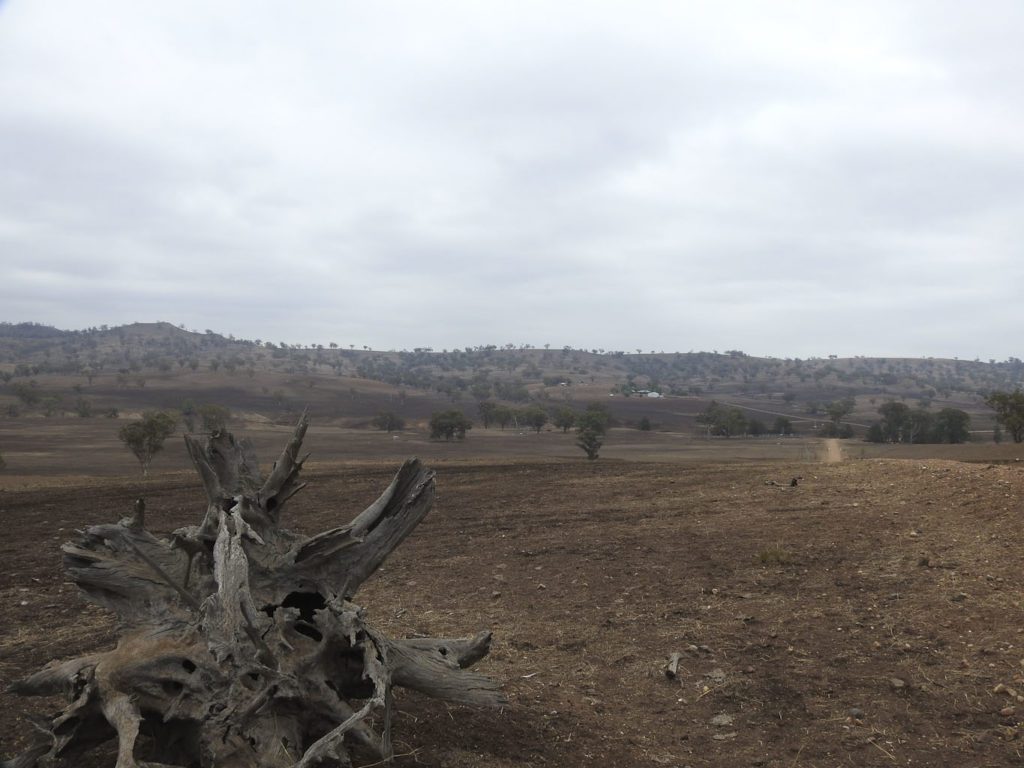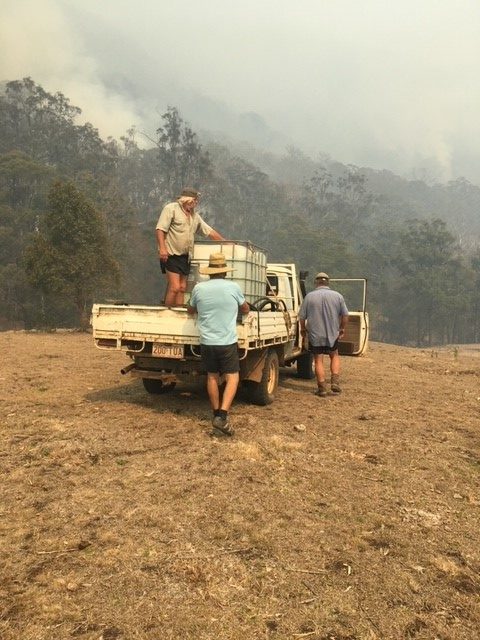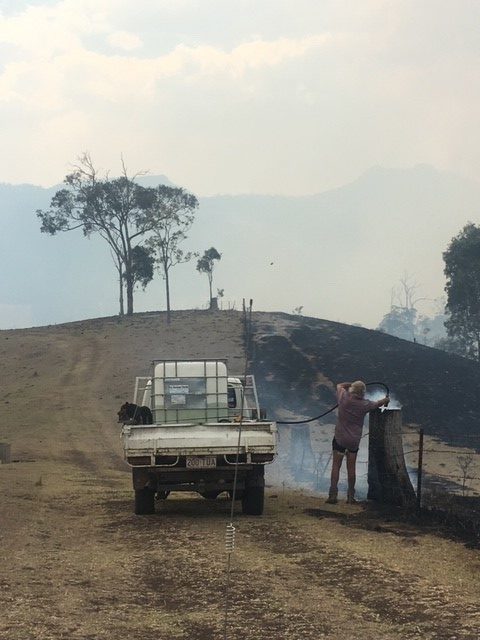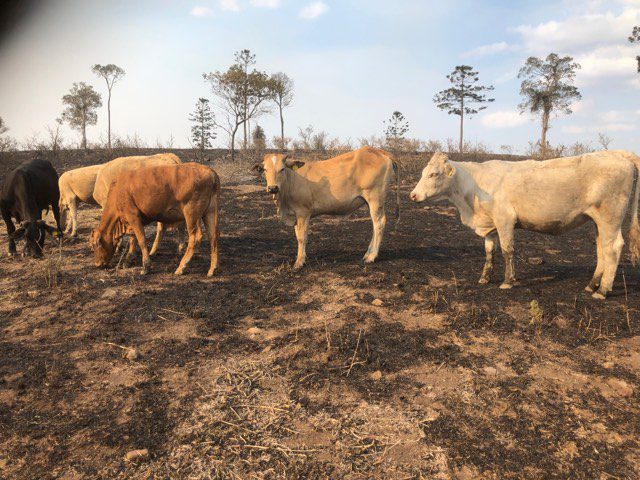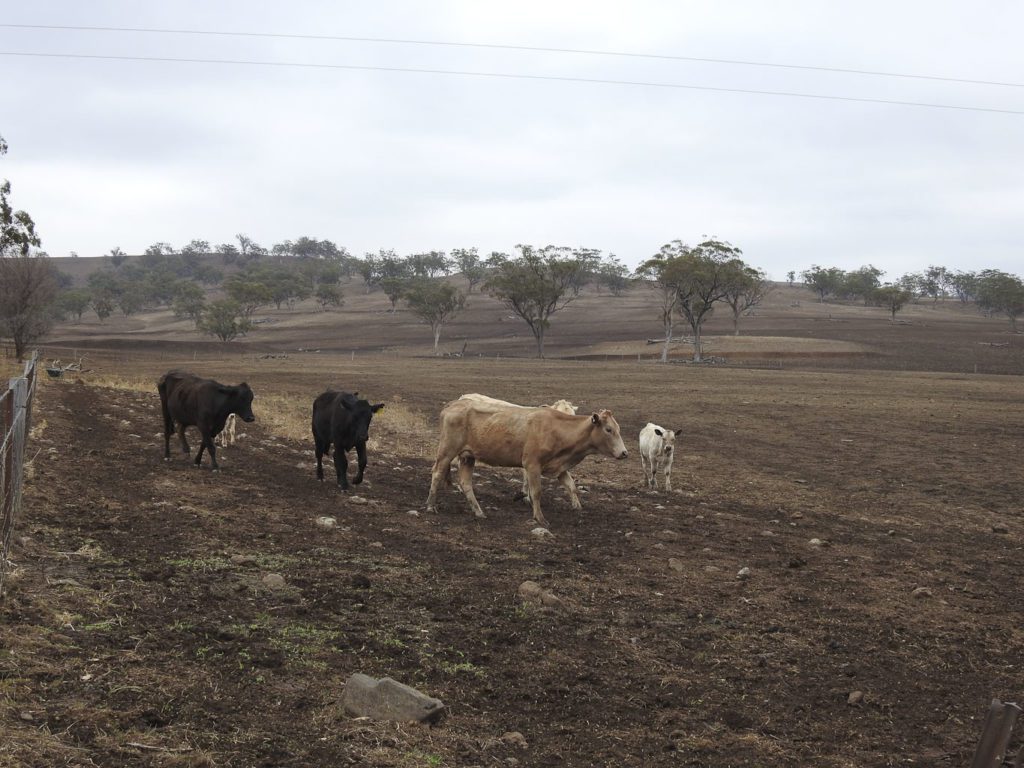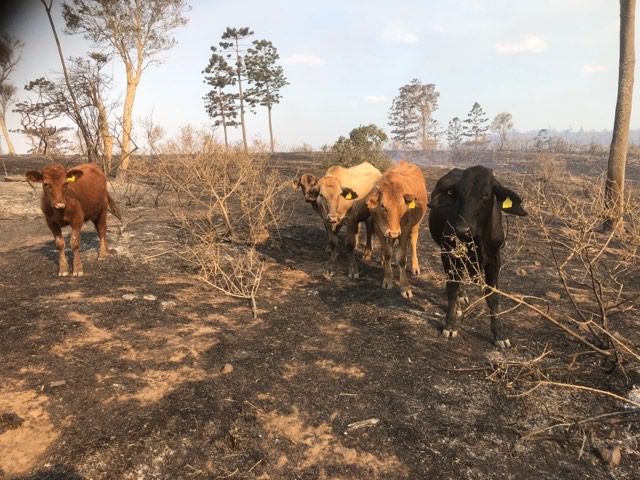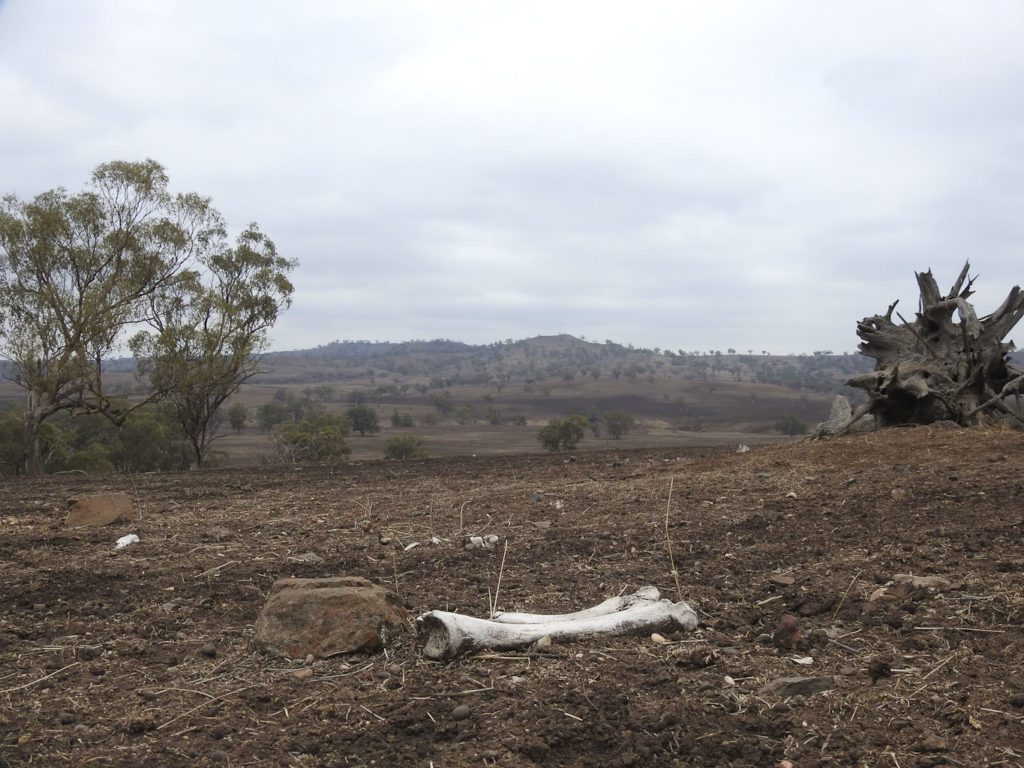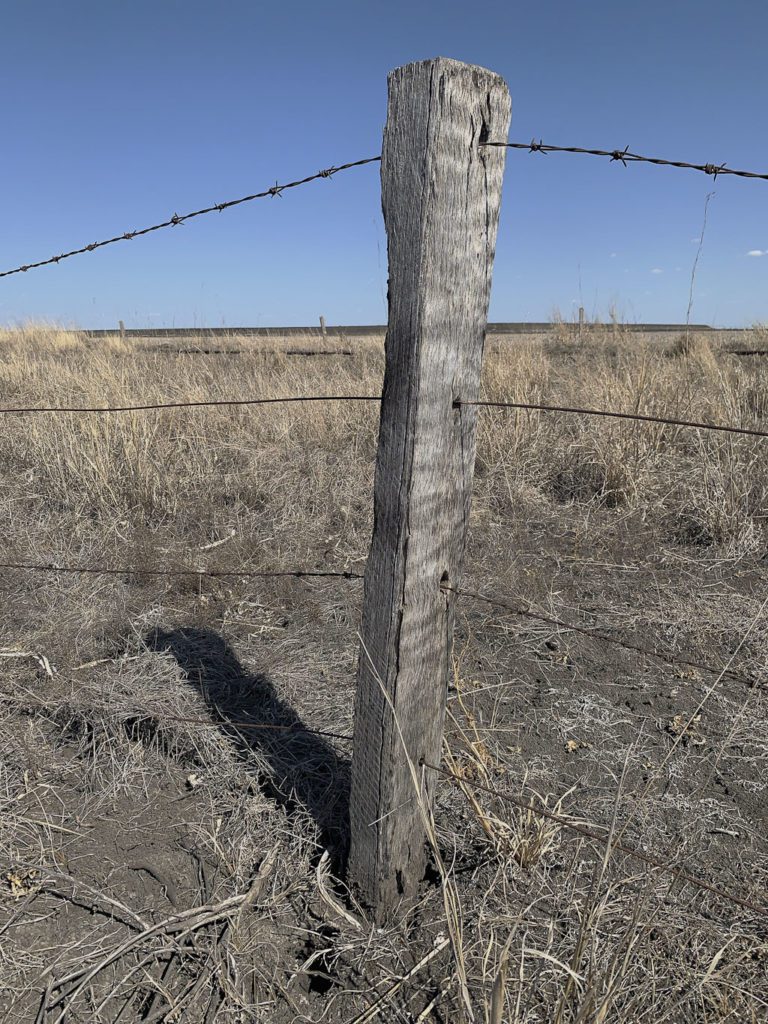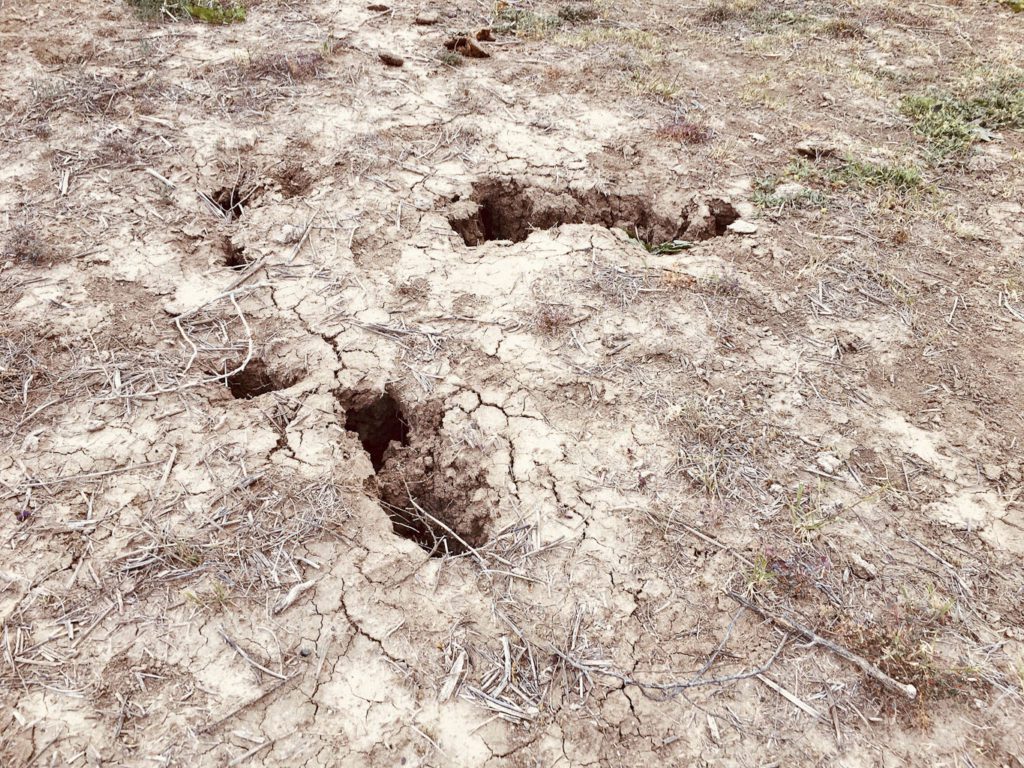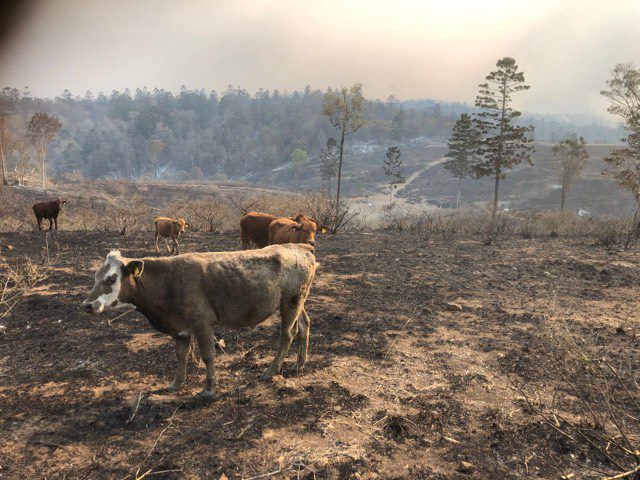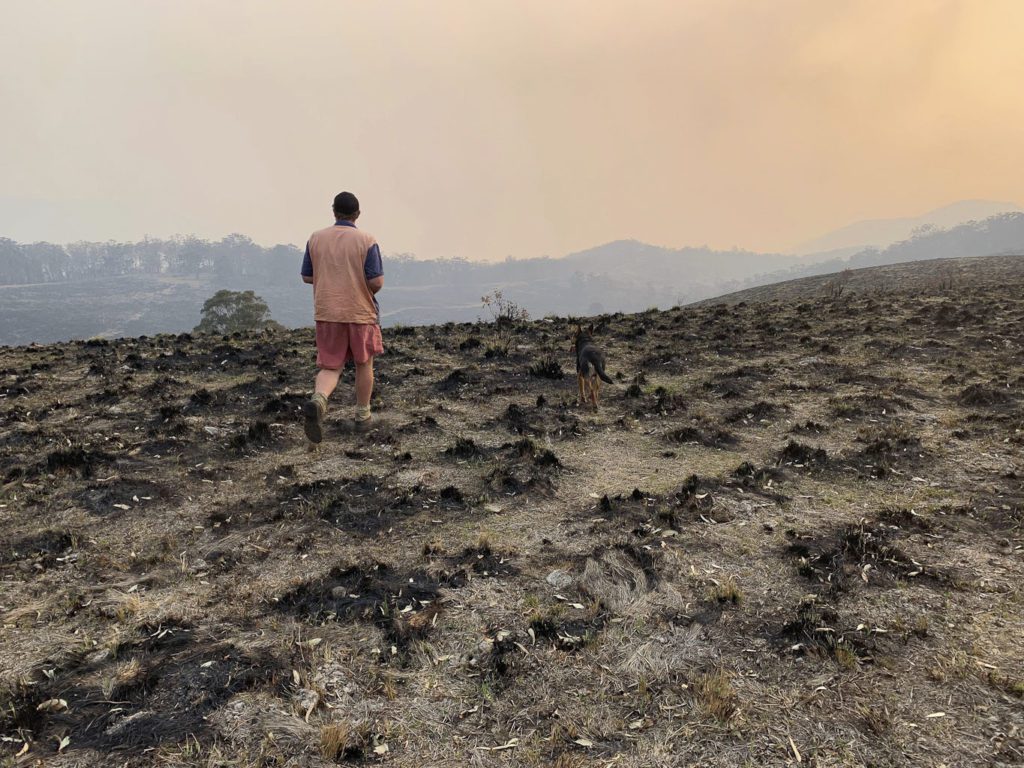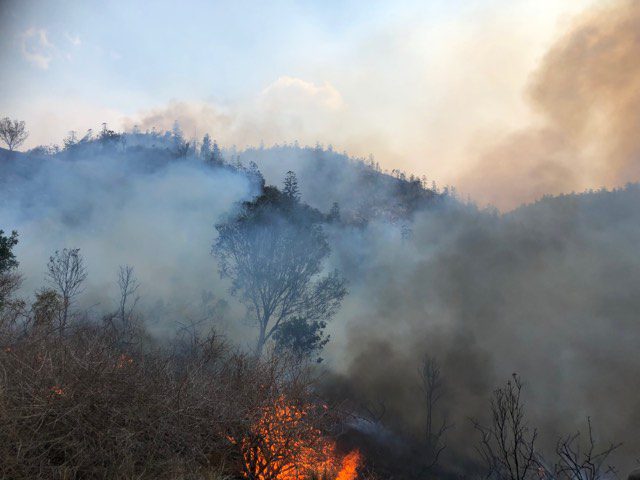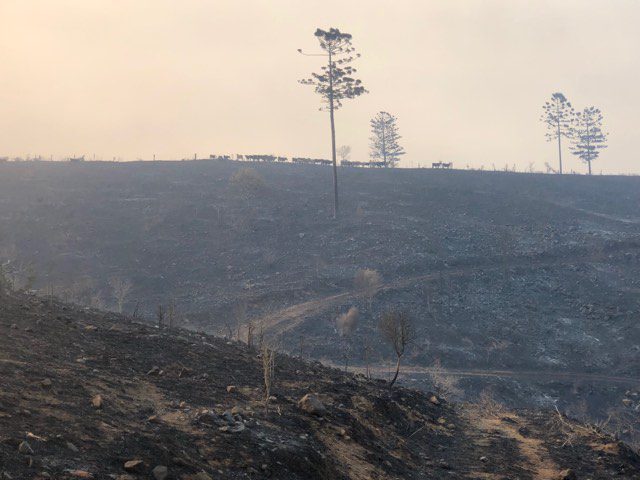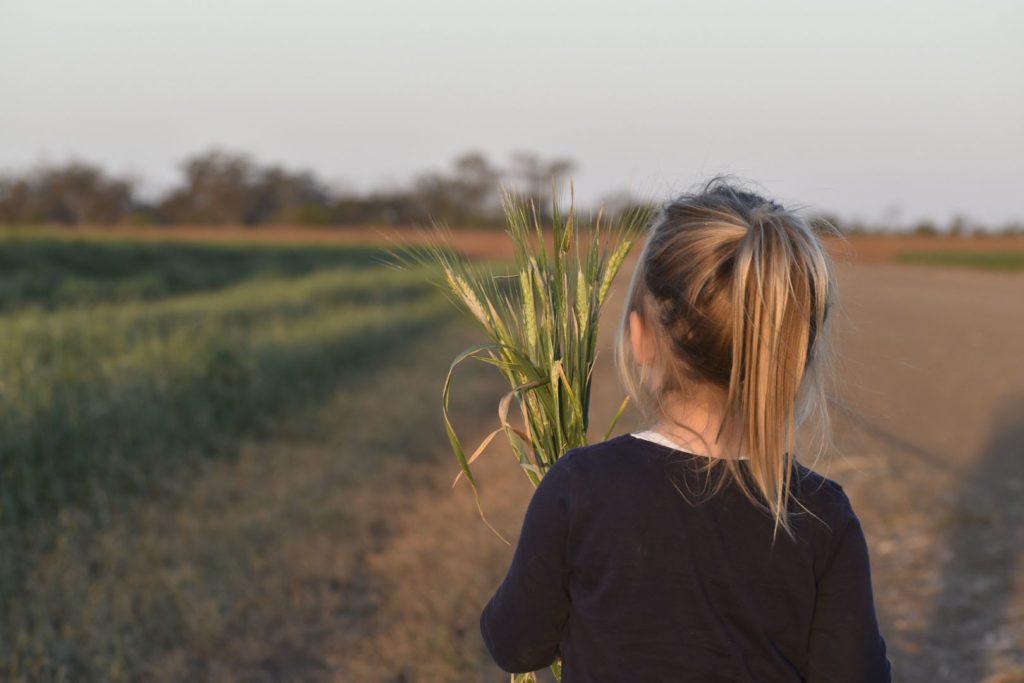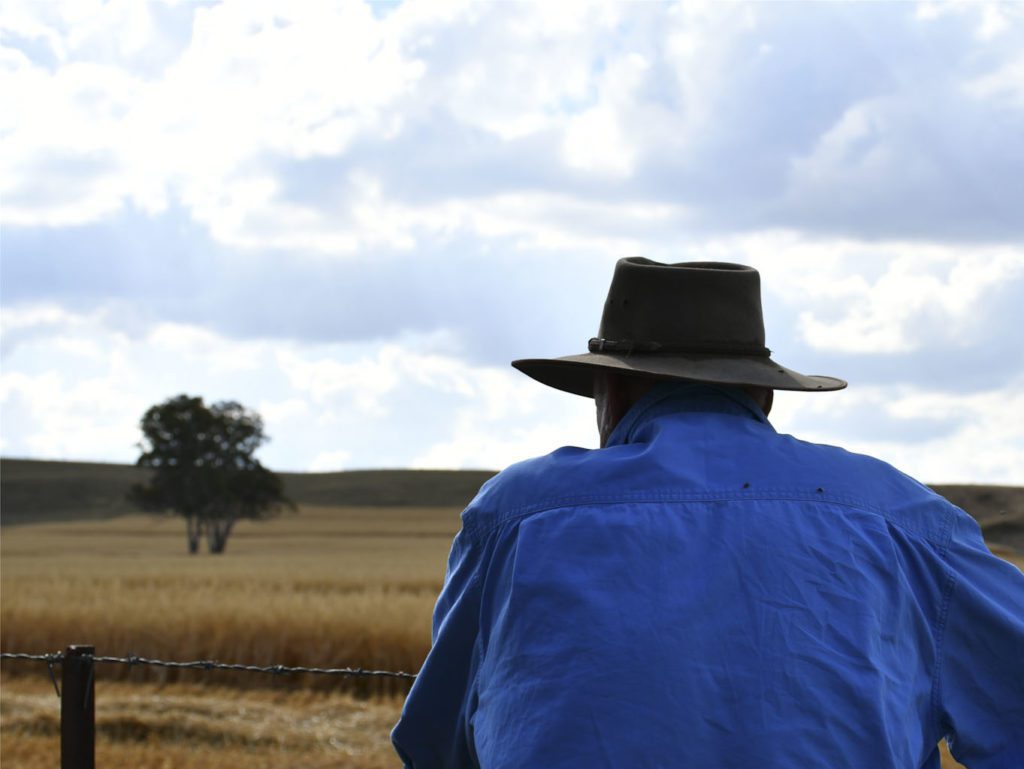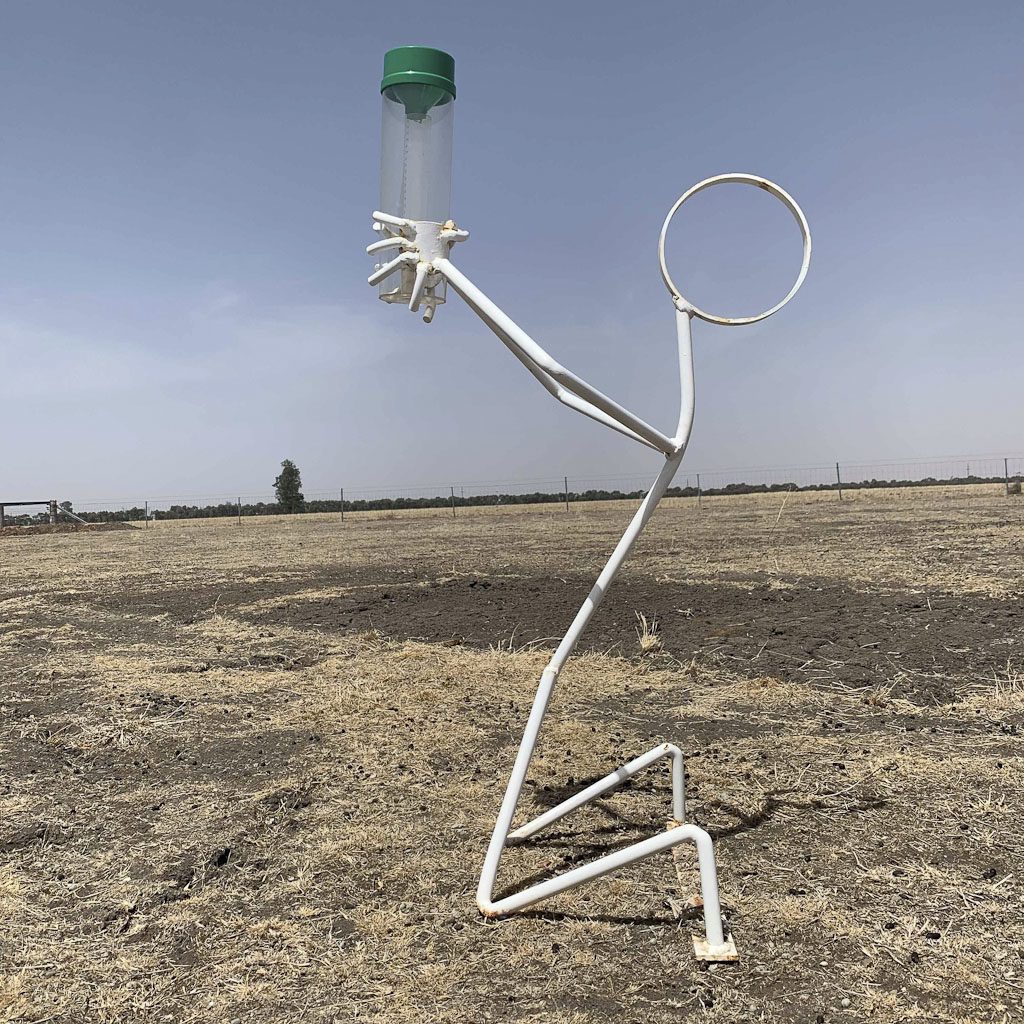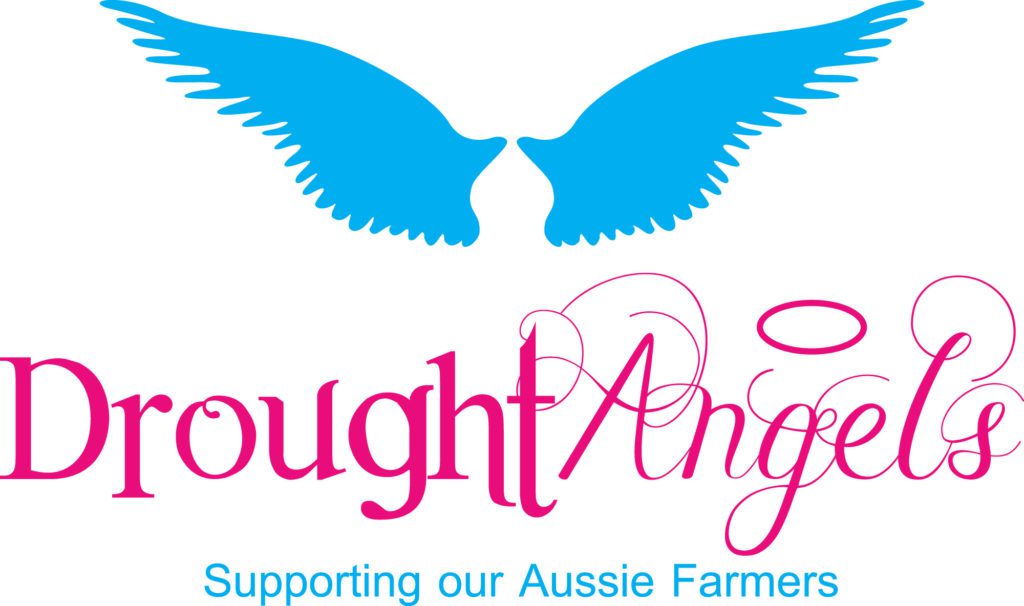PEOPLE
FARMER JOE and the VOLCANO
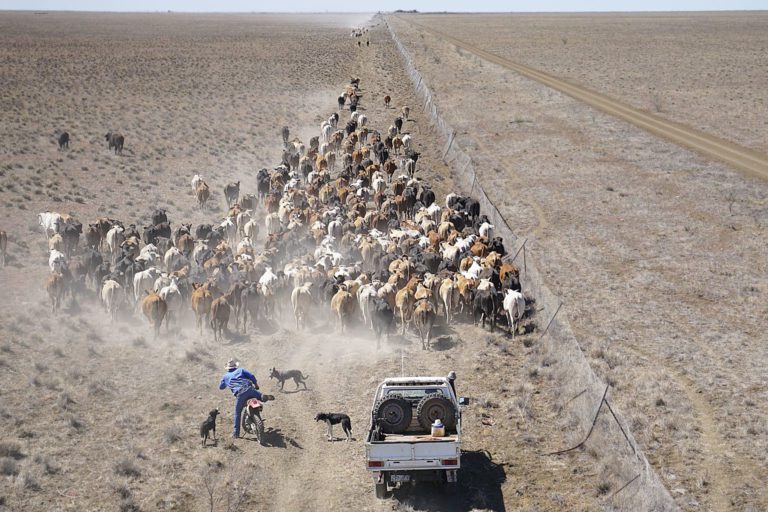
WORDS: James Jenkin PHOTOGRAPHY Supplied - Drought Angels
It is dark in the barn, but what light there is streams in patches through the windows and cracks in the framework. Cobwebs coat the tools, the cans of spray paint and the rungs of an old wooden chair where his grandfather used to sit. An old radio plays country music, the dust trickles down from the rafters of the mezzanine above, hitting the sunlight and creating the appearance of a curtain separating a submerged world from another time.
“It smells so good in here, don’t you think?” Joe the farmer comments as he proudly shows me through the mechanical and engineered birthplace of his family history 150 years before.
“Smells like men working” he adds, he takes a deep breath, “yes I reply”
Joes wife Helen joins us in the barn, pauses at the work bench where she found his suicide letter a year before, the night he attempted to take his life.
“My dearest love,” it began, and continued for pages. “I have torment in my head.”
On that morning he kissed his two daughters goodbye as he normally did on their way out the door to school, he called his father living up the road, and told him he would put the tractor down the bottom paddock ready for harvest sometime that morning. Joe stood in the kitchen of the farmhouse, gazing out the window at the drought, the desperate droop, the crop bleeding for water. God’s prayers had gone unanswered and had ruined the generational farm he inherited and promised to make good.
“I can’t think,” he screamed at Helen, “I feel paralysed, what can we do, I feel like my head is going to explode, like a volcano?”
It was harvest season, and stress was high. Joe worried about the weather and worked around the clock to get his crop out of the ground in time, no rain meant that the crop was dying by the day and something to salvage was better than nothing. He hadn’t slept in three nights and was struggling to make decisions.
“I remember thinking ‘I wish I could pick him up and put him in the car like you do with a child,’” Helen says. “And then I remember thinking … and take him where? Who can help me with this? I felt so alone.”
Helen felt an “oppressive sense of dread” that intensified as the days wore on. At dinnertime that day his ute was gone, and he wasn’t answering his phone, it was dark when she went to the barn and found his letter. “I just knew,” Helen says. She called 000 immediately, but by the time the authorities located his ute, Joe had attempted to take his life, overdosing on tablets from the medicine cabinet in the family bathroom.
Helen describes her husband as a strong and determined man, funny and loving father. They are raising two children together. He always bursts through the door singing the Mighty Mouse song, “Here I come to save the day!” and make everyone laugh. He embraces new ideas and is progressive in his farming practices, “In everything he does, he wants to be a giver and not a taker,” she says.
After his suicide attempt, Helen began combing through his things secretly without his knowledge, “Every scrap of paper, everything I could find that would make sense of what he had tried to do.” His phone records showed a 20-minute phone call to an unfamiliar number on the afternoon he tried to take his life.
Helen called the number, Dr Rothman answered.
“My name is Helen (blank),” she said. “My husband tried to commit suicide and you were the last person he called.”
There was a pause on the line.
“I have been so worried,” said Rothman “Helen, I am so glad you called me.”
Rothman was a friend of Joe’s from school and a former farmer himself, Joe had lost touch with him after school, leaving to return to the farm. A psychologist and a leading behavioural expert on farmers health and wellbeing. He often answered phone calls from those in crisis, and for 15 years, he had worked to understand why farmers take their lives at such alarming rates, currently higher rates than any other occupation in Australia.
“Once upon a time, I was a vegetable farmer,” said Rothman. “And I too, was depressed, unhappily married, overwhelmed by the kind of large debt typical for a farm operation. We were growing food however we could not afford to buy it. We worked 80 hours a week and could not afford to see a dentist, let alone a therapist. I remember panic when a drought threatened our crop, the constant fights about money, the way light swept across the walls on the days I could not force myself to get out of bed”, he continued. “Farming has always been a stressful occupation because many of the factors that affect agricultural production are largely beyond the control of the producers, the emotional wellbeing of family farmers is intimately intertwined with these changes.”
Rothman went on to add that the farmer suicide rate might even be higher than thought, because an unknown number of farmers disguise their suicides as farm accidents.
“I left my marriage and my farm ” said Rothman, “and I began to write and to explore our country’s fervent celebration of the agrarian, and yet how, despite the fact that we so desperately need farmers for our survival, we often forget about their wellbeing”
I am captivated by this relationship between Joe and Rothman, two school friends, two farmers with similar backgrounds, ending up in a phone call on a day where Joe wanted to end his life, what was said, neither of them are forthcoming?, “patient confidentiality” Rothman says, and Joe just waves his hand at me and says it is not important. But as a writer documenting this story, I find it intriguing that a discussion so crucial toward the on off switch of life and death, could be left unexplained?
After being taken through the barn and enjoying the stories Joe had recounted about his childhood on the property, we were standing in the entryway of the farmhouse.
“Should I take off my shoes?” I ask. Helen waves me off. “It’s a farmhouse,” she says.
It is a warm feeling you get (homely) from country folk about the simple things we take for granted. No doubt it is different in the city, where there is an expensive pair of shoes lining every hallway of the stacked condominiums breaching the city skylines.
Joes father Len joins us in the farmhouse, and he has a great analogy about the differences between city and country folk. He has a familiar Australian twang to his accent, so far removed from the English Dictionary, that it needs subtitles. He is a kind faced man in his 70’s, with traditional clothing that you would expect from a sixth generational farmer. He is undoubtedly weathered and has a tough exterior, a deep thoughtful voice, well versed and paced and never urgently offered.
“People in the city always feel like they are losing things, losing time, losing opportunity? if they don’t make a deadline, if they miss a meeting, they rush from place to place, always on the phone, stuck in traffic rushing here to there and always with a sense of loss”, Len Said “ People in the country on the other hand are always gaining things, time and experiences, a different perspective if you like?” he goes on to explain, “If we were standing in the middle of a busy city street and a man in a business suit was bent over looking at the footpath, I bet everyone in the city walking by him that bothered to stop would ask, (What have you lost?), whereas a farmer walking up to another farmer bent over in his paddock looking at the ground would ask, (what have you found?) it is a matter of perspective and conditioning”
The farmhouse is warm and immaculately decorated. Helen is baking scones in the brightly lit kitchen. Joe is a large man with a beard and could appear as Santa Claus at the local school fete if he wanted, in his early 40’s, reading glasses perched on a kind round face, a head of hair and a bushy moustache. Joe and Helen met at school, left their university aspirations behind, when Joes father Len decided he wanted to retire and leave the 1900-acre farm to his son. Joe laughs as he tells me about his school mates heckling him over the decision, giving up studies for farming, “I told them farmers are an endangered species” Joe says, “and we need them for our sustenance. I need to go take care of animals and the farm, because nobody else does,” Joes family farm had diversified over 150 years and had lay claim to having farmed Sugar, Wheat, Soybeans, Oats, Hay, Purebred Cattle, Chickens, Barley and Canola.
We are sitting in the sunlit kitchen chatting as if Joes suicide attempt was another farmer’s story not his. Joe and his father lean toward the wall at the table and have their head lowered, because it is not a topic that they wish to discuss, perhaps out of embarrassment or it is not what men do? They are uncomfortable with it, and I am only permitted to write this story based on the fact that I don’t reveal any information about the farm, their name or location, as Joes daughters do not know that 12 months ago in the grip of a severe drought and economic downfall, their father tried to take his own life. It is not a legacy he wanted to leave, and sadly, was so close to becoming a reality for all of them.
The mood is uncomfortable in the kitchen, the oven alarm sounds off, breaking the moment the scones are done. The sunlight coming through the window has darkened and rain clouds have moved in over the property. The rain breaks gently on the iron roof and provides a refreshing interruption for Joe and his Dad, “better get the dogs in just in case”, Joe pulls on his rubber boots over his pants, and we go outside. He has the slightest limp from a previous harvest a few years back, he lost two of his toes “in a moment of carelessness with the grain combine”, he says, an event he describes as life changing. We are walking through the wet grass toward the kennels behind the barn, Joe cocks his head to the side. “Hear the calves?” he asks. “They’ve just been weaned.” We stop and listen; the calves sound out in distressed notes, their off-key voices like prepubescent boys crying out across the field.
The sky is chalk grey and for the moment it rains. Joes cows are lined up at the fence, cicadas trill from the trees, Joe walks toward them and to my shock, blurts out and instigates a one-sided conversation about the events of 12 months ago.
“You know I never wanted to hurt myself, I just wanted to rest?” he insists. “My mate Rothman had written some articles about farmers and suicide and I guess I called him to discuss my situation, I had read it 12 or 15 times, not because I was thinking anything, just read it that’s all” Joe continued. “It hit home with me something true, that I had nothing to offer and was tired, I just wanted to sleep for a while and wake up with it all fixed, I was tired”
Joes life revolved around his family and the success he brought to that heritage. The farmhouse is filled with memorabilia and photos of their children and his ancestors and imagery of better days than twelve months ago.
Joe has a sombre voice for big man and it rarely changes in inflection. We had been speaking by phone for over two months after a mutual friend contacted me and told me about his story and that he might want to discretely talk about it, to help other farmers suffering the same indignation.
We initially were not getting too far on the phone, Joe was a hard conversationalist, small talk type, didn’t sit well with him and he was disguising how he really felt with a stranger talking about his most personal of things. “How’s the weather in the city?” he would ask at the outset of each phone call. It was his way of breaking the conversation down and into a relative and familiar discussion for him. I suggested I drive out to see him and he agreed.
Joe like most farmers, has a strong impulse to supply essentials for human life, such as food and materials for clothing, shelter and fuel, and to hang on to his land and other resources needed to produce these goods at all costs.
“If your farm is struggling, you’re certainly going to be depressed and going to be worried about how to put food on the table, how to get your kids to University,” he goes on to say. “You need to have a family farm structure to have strong rural communities, for school systems, churches, hospitals, I’m watching with serious concern, the industrialization of the agriculture sector and the depopulation of rural Australia. Someone needs to care about what’s going on out here.”
“ that’s why I called Rothman, I knew him, he and I had both had our tough times, I was not seeking a therapist, I wanted a farmers opinion, who just happened to be a therapist?. If you go to a therapist who may know about therapy but does not understand farming, then the therapist might say, ‘Take a vacation, that’s the best thing you can do.’ And the farmer will say, ‘But my cows aren’t on a five-day-a-week schedule?’”
According to Joe, calling Rothman on the day of his attempt was merely for the purpose of looking for a conversation with a farmer who would know what he was experiencing. “I would have really given anything to go and talk to someone at the time, but I thought I must be on my own” Joe says. “If any one person thinks they are the only one in that boat, they are badly mistaken!”
We walk back to the farmhouse the sun shower has cleared and Helen had the kettle boiled and a cup of tea and freshly baked scones ready to eat. I sat at the table and Joe lumps two journals in my hands. They’re filled with memories and images of his family and their history, images of his daughters walking through the fields barefoot, and similar images of him as a child barefoot in the same field, he recounts as I turn the pages, how his mother would pick burs out of his feet at night, pointing at a picture of him working at the local grain elevator, only to come home to farm work in the dark and count the cow’s by flashlight, unintentionally or not, he speaks in metaphorics about his life…
“Illuminating the darkness” he said “Sometimes the batteries of the torch were low and the light was not so bright, but when I found the cow that was missing, usually with a newborn calf, it made the dark of night much brighter.”
There was a jovial youthfulness about him, as we flicked through the pages of his history, we ate scones and drank tea and recalled the simple things that filled the contents of those journals, the very foundations of his farm, the very meaning of his life, memories…
I realised that I did not need the full story about Joe, it was sitting right in front of me and I was now a part of those pages.
We all get complicated and enter dark times, we all have moments where we stumble and fall, but we get back up again. Joe was lucky that he got that second chance, and he reluctantly shares his story with us, albeit unknowingly sharing a little part of his life that may make a difference to someone in a similar situation. We have the advantage of perspective, now knowing that as hard as it was twelve months before, the rains eventually did come, and the farm returned to its glory. Twelve months before we did not know Joe and he was one of a million farmers struggling and lost and feeling that they have failed generations of their family history. In truth, that history could not care less about the farm and only would want farmers like Joe around… We are grateful that we have someone here to remind us all, support agencies, family and friends, that the world is a better place with us all in it. To finish, I will leave it to Joe and his grandfather’s words….
“My grandfather was a great farmer, he was a terrible grandfather though, but he was a better grandfather to me than he was a father to my dad. He always talked about the old days and he told me once, that if I lived long enough, then all I would have is memories. He said, you will always have memories and you will remember the pain, the pleasures and things you got to do creating those memories and you will also remember that the best memories are the ones that you feared the most and overcame”
Please donate to Drought Angels to support our Aussie Farmers. Link below for donations below.


